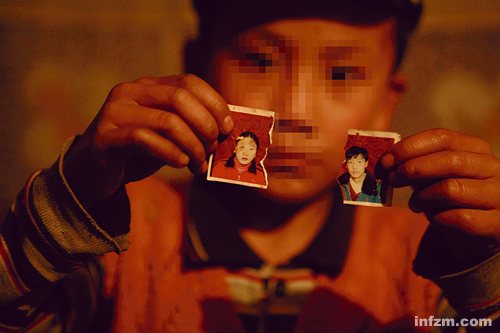AIDS orphans struggle for life
 |
|
An AIDS orphan holding his parents' photos. [file photo] |
Getting up at 6 am, Zhihuo, a 14-year-old girl from the Chinese Yi ethnic minority, started her first day as a fifth grader by feeding the only pig in her home, where she lives with her 76-year-old grandmother.
Brought up hand-to-mouth by her grandmother, the girl lost her parents several months after her birth in Zhaojue, a state-level poverty-stricken county in Yi Autonomous Prefecture of Liangshan in Southwestern Sichuan province.
In Zhihuo's class are 41 Yi students who are all believed to have lost one or both parents to AIDS.
Most students in the class have been raised by their grandparents, while several lucky ones could also count on their uncles and aunts, said Mouse Wusha, who began tutoring the children right after he graduated from college in August 2006.
The class, established by the prefecture's women and children development center at Sikai Central School of Zhaojue in 2006, started accepting funding from the China Red Ribbon Foundation, a national non-government organization dedicated to the prevention and control of AIDS, in September 2009.
AIDS-SHADOWED COUNTY
As China's largest Yi community, Liangshan was also one of the areas worst plagued by AIDS in China.
Since the first HIV-positive case was found among drug users sent back from Yunnan province in 1995, Liangshan had reported 18,003 cases of AIDS by the end of 2009, accounting for 60 percent of Sichuan's total, with 5,530 new cases last year alone, said Yang Zhaobo, deputy head of the prefectural government.
"Many people in Liangshan who contracted AIDS are intravenous drug users. Due to poor medical conditions, they wouldn't spontaneously take tests or seek medications, and finally died of various complications of the disease," said Ye Dawei, vice-secretary of the foundation.
The incurable disease left a large number of children orphaned in Liangshan, though no authoritative figures have been released.
 0
0 






